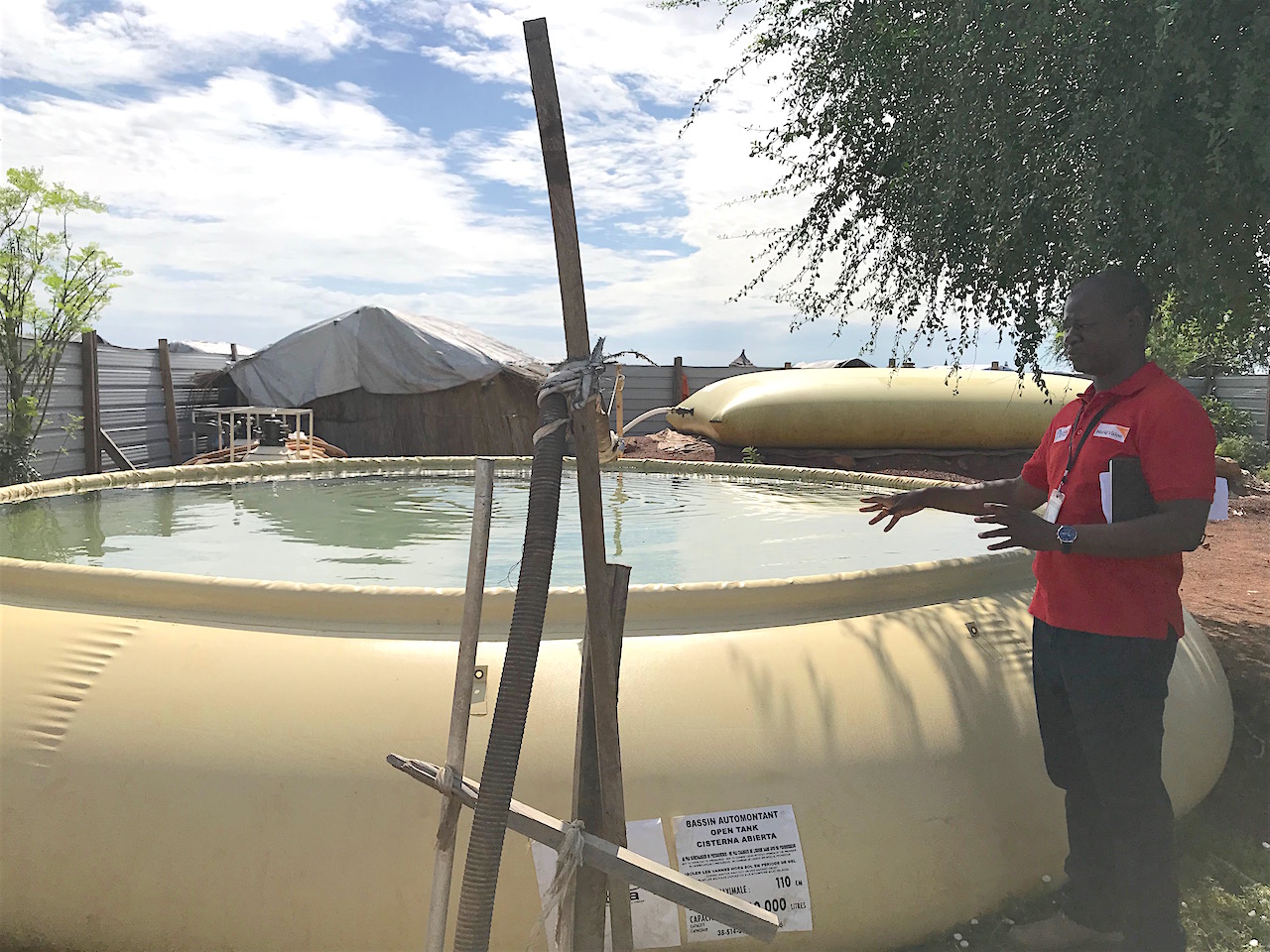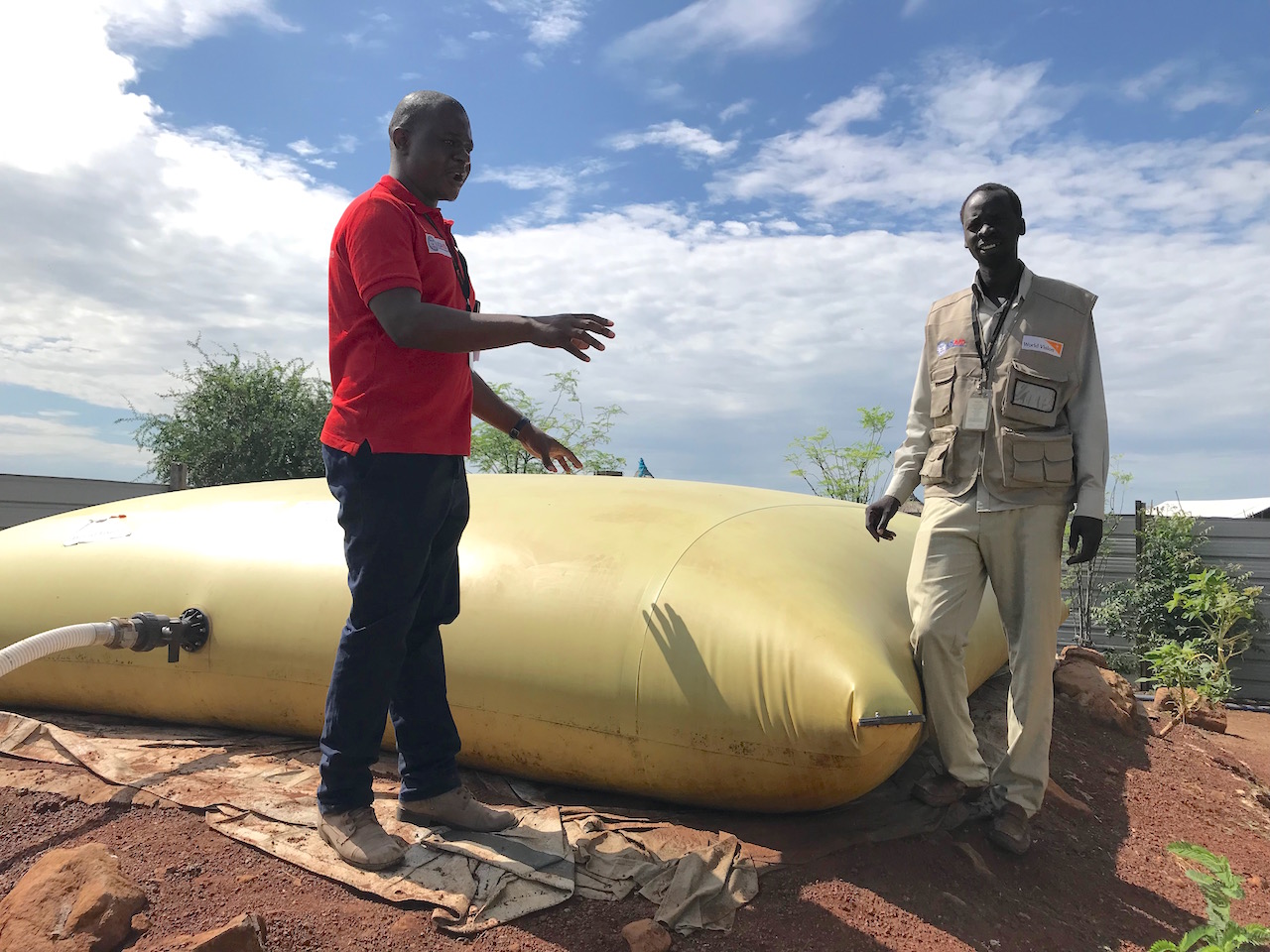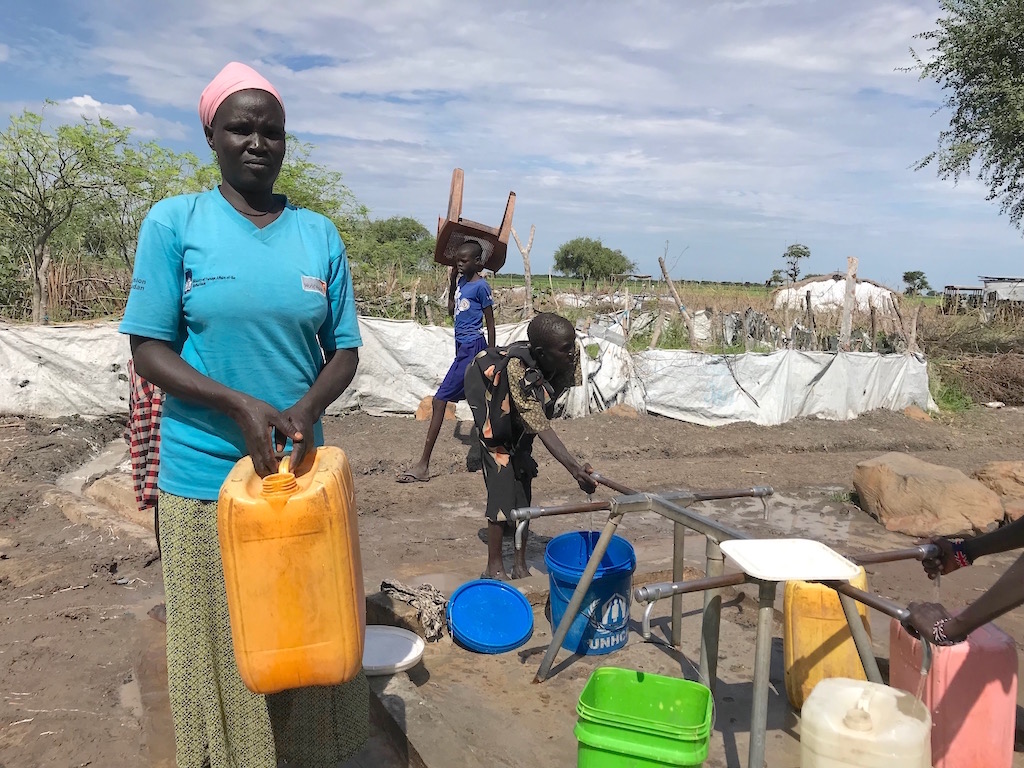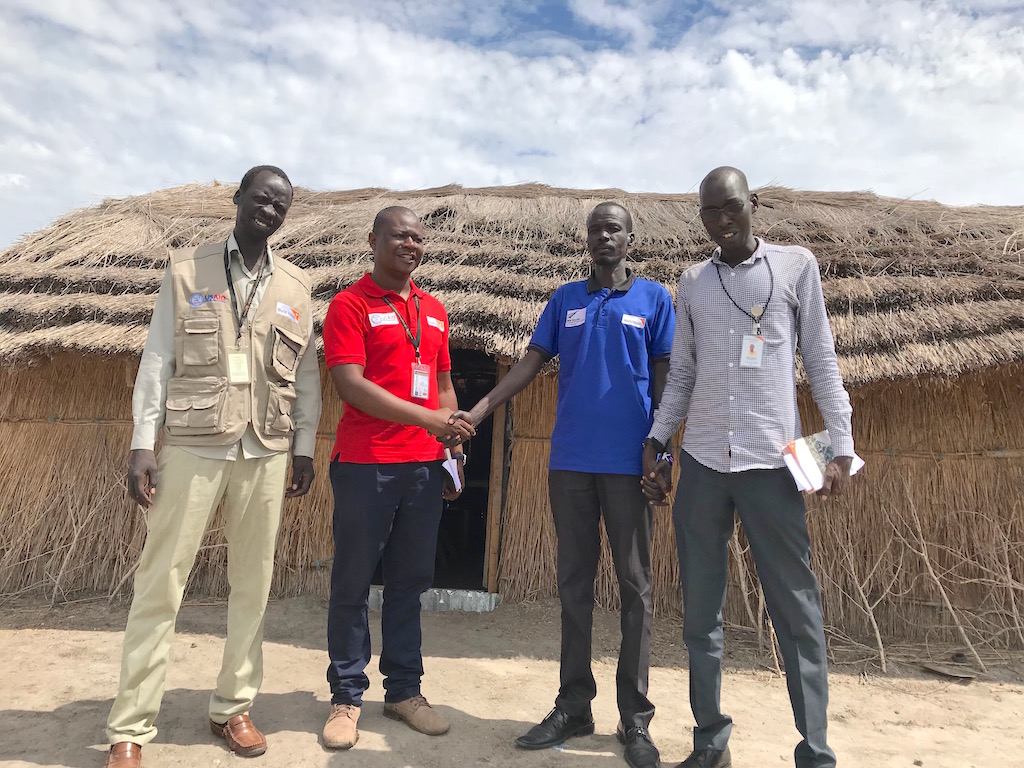Surface Water Treatment Systems purify 300,000 litres everyday from Nile River to South Sudan’s camps
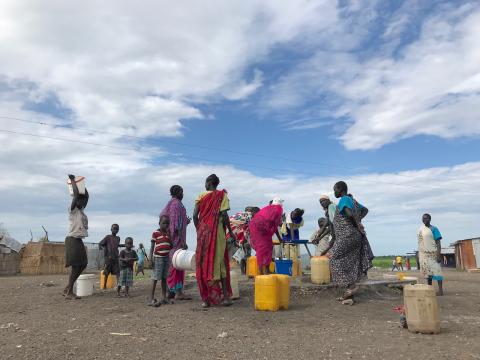
Did you know that in Dengtoma 1 and 2 camps for the internally-displaced people (IDP), World Vision pumps water from the nearby Nile River, purifies it through Surface Water Treatment Systems (SWATs) and produces over 300,000 litres of clean and safe water for use by over 20,000 people in the camps?
When people from Baliet County in Upper Nile State started filling up the area that eventually became Dengtoma camps on 2013, people relied on the Nile River for their water needs. On the following year, the camps suffered a cholera outbreak that devastated many and reportedly killed 19. One of the main reasons identified was the poor hygienic standards caused by unsafe water being used as well as open defecation in the camps, among other unsanitary practices.
With an initial support from the Government of Netherlands, Emergency Surface Water Treatment systems (Emswat) Program were established. When the funding ended, Government of Canada’s Department of Foreign Affairs, Trade and Development (DFATD), New Zealand’s Ministry of Foreign Affairs and Trade (MFAT) and United States’ Office of US Foreign Disaster Assistance (OFDA) continued the assistance.
Brighton Mapiye shows the onion tank that processes 30,000 litres of water every six hours.
The emSWATs makes clean and safe water possible through the purification system with the water passing through the onion tank that processes at least 30,000 litres every six hours and finally to the pillow tank that purifies 20,000 litres in less than 30 minutes.
“The entire set of the emSWAT equipment, including the tanks, is easy to set-up for emergencies. If there is an emergency for example a cholera outbreak we have to respond through provision of clean and safe water and this mobile system can easily be dismantled and set up in another location within the shortest period of time allowing us to respond timely to emergencies,” World Vision’s Emergency Response Manager Brighton Mapiye says.
This is why the facility is great for emergencies. It is the best choice of technology for supplying clean and safe water to the people in Upper Nile as groundwater development and other options have proved challenging. Having the River Nile close by made everything efficient,” Mapiye adds.
This pillow tank does the final purification process at 20,000 litres in less than 30 minutes.
Seventeen water distribution points were set-up around the camps ensuring that the SPHERE standards are met in both quantity of water supplied and the distance households have to walk to the water points, making it closer and easier for the households.
Mapiye explains, “Getting water from the points should not take beyond 30 minutes of walking.” Thirty volunteers from the camp ensure the smooth day-to-day operation of SWATs which includes Water Operators, Water Quality Monitors and Community Hygiene promoters.
Always ready with soap, one of the volunteers is 32-year old, Nyanhot, a mother of eight, is among those who are in-charge in checking the jerry cans ensuring they are cleaned properly.
“Cleaning it well daily is important to prevent contamination. It prevents people from getting sick. Sometimes, we go from house-to-house reminding the families on the need for them to maintain the cleanliness of their water containers,” Nyanhot says as she demonstrated how the cleaning must be done.
Nyanhot keeps an eye on dirty jerry cans and leads the campaign in every household to ensure they are clean all the time.
With several water points available to access their daily supply of clean water, mothers now have time to take care of their children and engage in other productive activities. The backbreaking work of carrying 20kg of water for household use has been greatly reduced. The most important part is available safe drinking water free of diseases.
Dengtoma 2 camp manager Joseph Khol expressed his appreciation of World Vision’s commitment to provide clean water to the camps. He says, “It is one of the most important support that World Vision provided for us. It stopped the diarrhea cases and diseases were greatly reduced. When the cholera happened, everyone was scared. Now, it is no longer a problem.”
Camp manager Joseph Khol (2nd from right) is very happy with the changes in the camp. He said the cholera threats were stopped because people are now using clean water.
